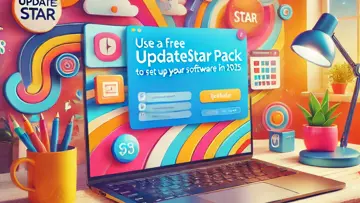Qt# (C# Qt Bindings)
mathpup – Open SourceQt# Bridges .NET and Qt for Seamless GUI Development
Qt# provides a strong binding between C# and the powerful Qt framework, enabling .NET developers to create rich graphical applications easily.
Overview of Qt#
Qt# is an innovative set of C# bindings for the popular Qt application framework developed by mathpup. This software allows developers to leverage the powerful functionalities of the Qt framework while using the familiarity and ease of C#. Offering a bridge between the two technologies, Qt# enables robust application development with rich graphical user interfaces and event-driven programming models.
Key Features
- Cross-Platform Development: Qt# supports multiple platforms, including Windows, macOS, and Linux, allowing developers to write code once and deploy it across various operating systems.
- Rich UI Components: Utilize a wide range of pre-built widgets and extensible components provided by the Qt framework, making it easy to create attractive user interfaces.
- Integration with .NET Ecosystem: Seamlessly integrate with existing C# libraries and leverage .NET features such as LINQ, delegates, and events for more structured programming.
- Extensive Documentation: Features well-documented guides and tutorials that assist developers at every stage of their project, from initial setup to advanced usage.
- Simplified Event Handling: The event-driven architecture allows for straightforward handling of GUI events, improving responsiveness and user experience in applications.
- Open Source: Being an open-source project encourages collaboration among developers, enabling contributions that enhance its functionality and breadth.
Installation and Setup
The installation process for Qt# is designed to be accessible, even for users who may be new to C# or Qt. The following steps outline the general procedure for setting up Qt# in your development environment:
- Prerequisites: Ensure that you have .NET SDK installed on your machine along with the necessary tools for building C# applications.
- Download Qt: Visit the official Qt website to download and install the necessary version of the Qt framework.
- Get Qt#: Download the latest release of Qt# from its repository. This can typically be found on GitHub or through other community channels related to mathpup.
- Add References: In your C# project, add references to the downloaded Qt# libraries to start utilizing its functionalities.
User Interface Design
The ability to create visually appealing interfaces is a standout feature of Qt#. It provides a native look-and-feel that resonates with users on any supported platform thanks to its widget-based architecture. Developers can use tools like Qt Designer alongside Qt# to visually design their interfaces while still maintaining full control through C# code for functionality.
Performance Considerations
Offering high performance is crucial for any framework and Qt# does not fall short. By utilizing native libraries from the underlying Qt system, applications built with Qt# can run efficiently while accessing substantial graphical functionalities. Furthermore, optimizations in both the C# layer and the performance of compiled code contribute towards smooth execution in resource-intensive applications.
Community and Support
The support ecosystem surrounding Qt# is marked by an active community eager to share knowledge and provide assistance. The combination of documentation along with community forums offers valuable resources for troubleshooting issues or simply discovering best practices. Regular contributions improve both the stability and capabilities of the software, making potential paths for resolving problems diverse and accessible.
Use Cases
Qt# caters to various use cases ranging from simple desktop applications to complex multimedia software. Here are several specific examples where Qt# shines:
- Desktop Applications: Ideal for developing traditional desktop software that requires a rich user interface with interactive elements.
- Data Visualization Tools: With its robust rendering capabilities, developers can create sophisticated data visualization applications that present information in an engaging manner.
- Cross-Platform Software Development:
Overview
Qt# (C# Qt Bindings) is a Open Source software in the category Development developed by mathpup.
The latest version of Qt# (C# Qt Bindings) is currently unknown. It was initially added to our database on 10/16/2009.
Qt# (C# Qt Bindings) runs on the following operating systems: Windows.
Qt# (C# Qt Bindings) has not been rated by our users yet.
Pros
- Enables C# developers to use Qt, which is a powerful framework for cross-platform application development.
- Provides easy access to a vast set of Qt features and libraries while writing applications in C#.
- Supports rapid development with a rich set of UI components and controls that can be easily manipulated in C#.
- Community-driven and open-source, allowing for collaborative improvements and updates.
- Great for developers looking to leverage both .NET and Qt in a single project, combining the strengths of both environments.
Cons
- Not as widely adopted as other C# frameworks like Windows Forms or WPF, which may affect community support.
- Potential issues with performance optimization compared to native C++ Qt applications.
- Documentation might not be as comprehensive or detailed as the official Qt documentation for C++ users.
- Learning curve may be steep for those new to both C# and Qt, especially in understanding the bindings and their quirks.
- Compatibility issues might arise with newer versions of Qt or .NET, requiring continuous maintenance.
FAQ
What is Qt#?
Qt# is a set of C# bindings for the Qt application framework.
Who created Qt#?
Qt# was created by mathpup.
What is the purpose of Qt#?
The purpose of Qt# is to allow C# developers to utilize the Qt framework for developing cross-platform applications.
Is Qt# open source?
Yes, Qt# is open source and available under the MIT license.
Which versions of Qt does Qt# support?
Qt# supports Qt 5 and later versions.
Can I use Qt# for commercial projects?
Yes, you can use Qt# for commercial projects as it is licensed under the MIT license.
Where can I find documentation for Qt#?
Documentation for Qt# can be found on the official GitHub repository or website.
Does Qt# support all features of the Qt framework?
Qt# provides bindings for most features of the Qt framework, but some advanced features may not be fully supported.
Is there an active community around Qt#?
Yes, there is an active community of developers using and contributing to Qt# on platforms like GitHub and forums.
Can I contribute to Qt#?
Yes, contributions to Qt# are welcome and can be made through pull requests on the official GitHub repository.

Peter Salakani
I'm Peter, a software reviews author at UpdateStar and content specialist with a keen focus on usability and performance. With a background in both software development and content creation, I bring a unique perspective to evaluating and discussing general software topics. When I'm not reviewing software, I enjoy staying updated on the latest tech trends, experimenting with new applications, and finding innovative solutions to everyday tech challenges.
Latest Reviews by Peter Salakani
Latest Reviews
|
Onyx Pro Client Setup
Effortless Client Management with Onyx Pro |
|
|
GRip
GRip by RipTrails: Your Ultimate Trail Navigation Companion |
|
|
|
ePub Reader for Windows versión
Effortless eBook Reading with ePub Reader for Windows |
|
|
MiteNews
MiteNews: Revolutionizing News Consumption |
|
Namirial Sign
Effortless Digital Signing with Namirial Sign |
|
|
|
Recordify
Effortlessly convert streaming music to MP3 with Recordify by Abelssoft |
|
|
UpdateStar Premium Edition
Keeping Your Software Updated Has Never Been Easier with UpdateStar Premium Edition! |
|
|
Microsoft Visual C++ 2015 Redistributable Package
Boost your system performance with Microsoft Visual C++ 2015 Redistributable Package! |
|
|
Microsoft Edge
A New Standard in Web Browsing |
|
|
Google Chrome
Fast and Versatile Web Browser |
|
|
Microsoft Visual C++ 2010 Redistributable
Essential Component for Running Visual C++ Applications |
|
|
Microsoft Update Health Tools
Microsoft Update Health Tools: Ensure Your System is Always Up-to-Date! |





